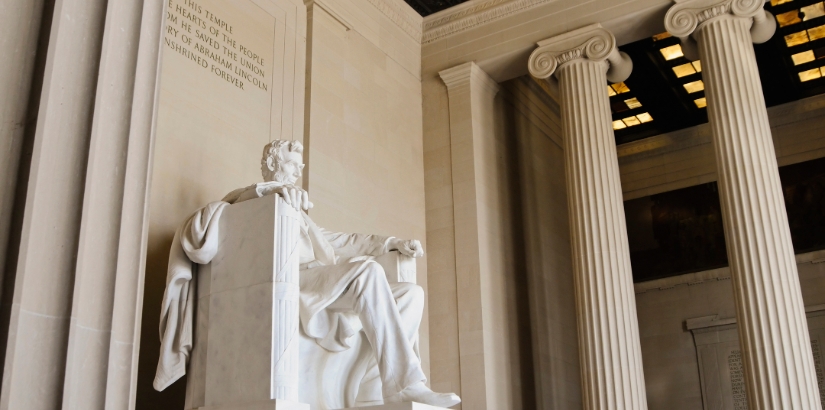Planning Reflection | December 10, 2021
The end of the year is often a time of reflection and gratitude, generosity, and family. Although entirely arbitrary, the end of one calendar year and the celebration of the New Year holiday hold symbolic weight as a time of new beginnings. The act of reflecting on the past year and envisioning the year ahead can be exciting, but it also feels more difficult in this era of changing public health conditions and travel restrictions. This raises the question, “Why bother planning when the landscape of possibilities and restrictions is changing so frequently?”
Though the pandemic has made it particularly salient, there is always uncertainty in life. Plans rarely come with a guarantee, but the process of planning reduces uncertainty and increases the likelihood that you will arrive at an outcome that aligns with your values and priorities.
Planning Supports Flexibility
Consider planning a vacation. You decide that you’ll go to the beach on Monday, visit museums on Tuesday, have a fancy dinner on Wednesday, and relax on Thursday. When you get there, it’s raining all day Monday, and it isn’t slated to stop until Wednesday afternoon. The reality is disappointing and frustrating, but was planning an itinerary a waste of time? No, because now you have a resource to help you regroup and adjust to this unexpected situation. Your plans can be rearranged, and you can still hit the beach on Thursday.
The value of planning comes not from a static version of “the plan” that emerges from a single strategy session, but rather from increasing your ability to react effectively. Things can and do change abruptly, requiring modification to any carefully constructed plan. Having articulated your goals and priorities, as well as your resources and constraints, you can have more confidence that you’re heading in the right direction despite unexpected detours that may arise. Phrased differently, if you don’t take the time to prepare a roadmap in advance, it’s easy to end up somewhere unintended – and maybe somewhere you don’t want to be.
Good Process
Sometimes the best-laid plans simply don’t work out, and sometimes you reach your goal despite a lack of intentional planning. Circumstances outside our control can have an outsized influence on any particular outcome, particularly in the short-term. When we zoom out to assess the full breadth of possible outcomes over longer periods of time, we see that planning reduces the impact of luck – whether good or bad – and better positions you for favorable long-term outcomes.
There are many examples of this in the financial world. Paying for term life insurance provides various benefits over time, even if you outlive the policy. The process of defining financial priorities and evaluating risks, as well as the peace of mind provided by having insurance, are all tangible benefits of insurance planning. We hope never to need the term life insurance, but having it in place can provide your family financial resiliency in a difficult situation. The greater the uncertainty, the greater the value of good planning.
Estate planning offers a related example. Just as with insurance, the process of estate planning has its own value. In order to draft documents, you have to answer a number of important questions, including who you trust to take care of you and your loved ones when the time comes. Along the way, you may initiate conversations with a spouse, siblings, or adult children, and together have the opportunity to share hopes and fears. These discussions can reduce misunderstanding and confusion following your death, and can also help your heirs plan in a way that leads to better outcomes in their own financial lives.
In Pursuit of Better Outcomes
We prioritize intentional planning with our clients and have witnessed how it creates resilience and positive outcomes in the face of the unexpected. We anticipate that plans won’t always unfold in a predictable fashion, and we build in flexibility and alternate scenarios with this in mind. Again, it is the process of planning, of envisioning the future and articulating priorities, that ultimately supports better decision-making in the present. Even amidst pandemic uncertainty, a clear view of our current circumstances and priorities can provide confidence that our present decisions are moving us toward our desired future.
 | About Sam Wood-Bednarz, CFP®Sam Wood-Bednarz is a Partner, Senior Advisor, and Director of Advisory Services. He provides clients with a sense of confidence and security in their financial lives. |
This commentary on this website reflects the personal opinions, viewpoints, and analyses of the North Berkeley Wealth Management (“North Berkeley”) employees providing such comments, and should not be regarded as a description of advisory services provided by North Berkeley or performance returns of any North Berkeley client. The views reflected in the commentary are subject to change at any time without notice. Nothing on this website constitutes investment advice, performance data, or any recommendation that any particular security, portfolio of securities, transaction, or investment strategy is suitable for any specific person. Any mention of a particular security and related performance data is not a recommendation to buy or sell that security. North Berkeley manages its clients’ accounts using a variety of investment techniques and strategies, which are not necessarily discussed in the commentary. Investments in securities involve the risk of loss. Past performance is no guarantee of future results.



